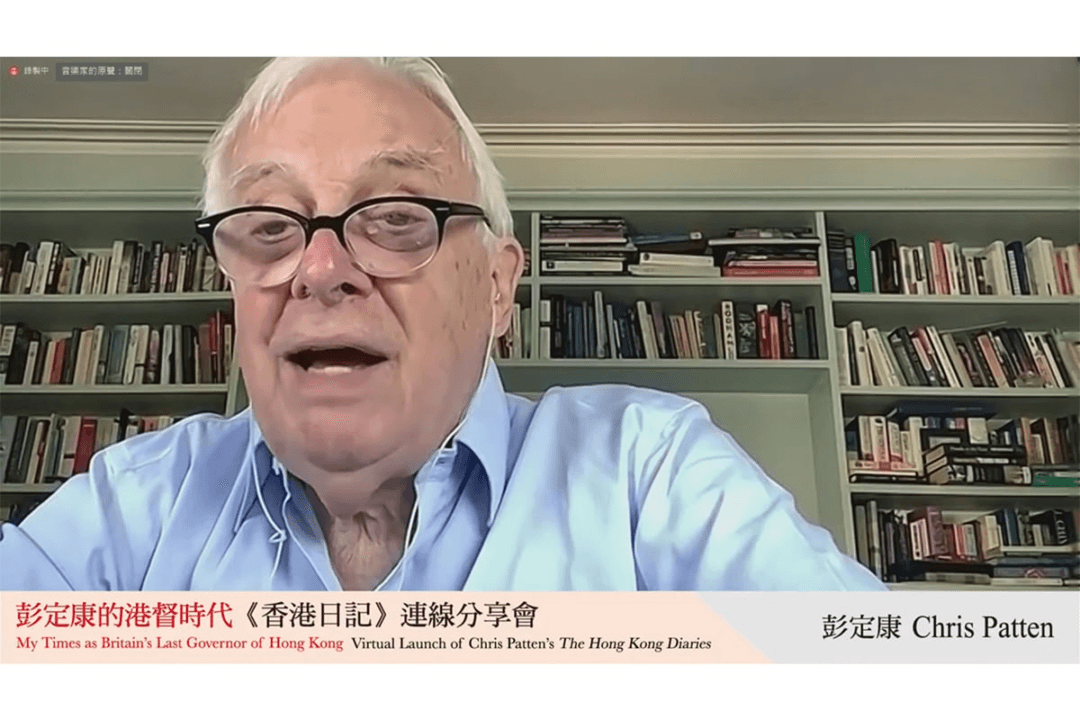The Chinese translation of “The Hong Kong Diaries” authored by the last governor of Hong Kong, Chris Patten, was recently published in Taiwan. The publisher, Black Body Culture, invited Patten to attend an online sharing session on June 8. During the session, Patten criticized the CCP for being like a 19th-century colonial power and lacking the ability to economically and politically reform. He accused them of distorting history by claiming that “Hong Kong was never a British colony.”
“The Hong Kong Diaries” is a collection of Patten’s diary entries during his tenure as governor from 1992 to 1997. It describes the governance of Hong Kong as a British colony and the events leading up to its sovereignty transfer. In his diary, he recorded negotiations with Chinese representatives and his emotions when leaving Hong Kong in 1997. He was not sure then if Hong Kong could maintain its status as an international city.




